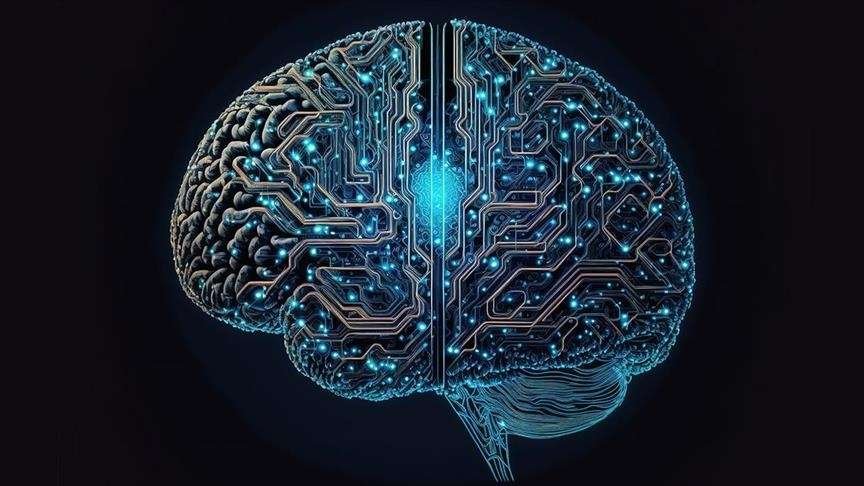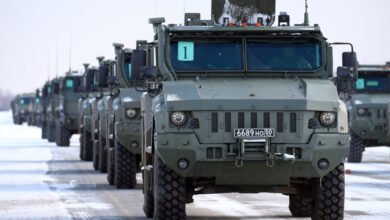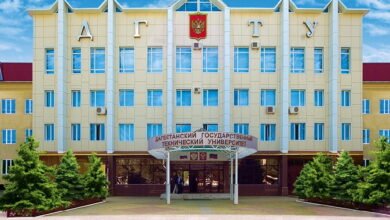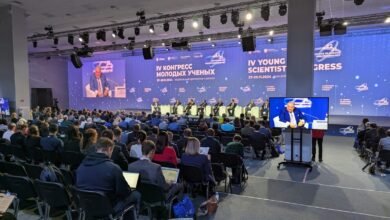Scientific and educational institutions will be supported in the development of machine intelligence
The state is allocating more than five billion rubles to scientific and educational organizations for the development of industry research centers in the field of artificial intelligence.

The second wave of applications was held at the end of last year. 28 participants from 17 regions of the country claimed to win, the most popular industry areas were digital industry, healthcare, transportation and logistics.
As a result, six organizations will receive financial support, including five universities: the N.N. Blokhin Oncology Research Center. N.N. Blokhin, Samara University named after Academician S.P. Korolev, Novosibirsk State University, National Research Nuclear University MEPhI, N.I. Lobachevsky NNGU and St. Petersburg State University. From this year until 2026, each will receive about 632 million rubles to implement the industry’s AI research center program. “The new participants will be involved in the scientific agenda within the framework of the updated National AI Development Strategy until 2030,” said Deputy Prime Minister Dmitry Chernyshenko. It is planned that the funding will go to the development of specialized scientific research in the field of AI, the development of applied AI solutions implemented at industrial partners, the training of industry specialists and the formation of industry datasets.
According to Maxim Kolesnikov, deputy head of the Ministry of Economic Development, the main task was to select centers that would produce specific applied results and ensure integration of technological solutions in the industry. Among the promising projects are software for early detection of cancer diseases, security systems for the use of drones and others.
For example, the Research Center “Trusted Artificial Intelligence for Healthcare” is being established on the basis of Lobachevsky State University in Nizhny Novgorod. It will develop and implement AI algorithms to assess and monitor the risks of cardiovascular diseases. The efforts of scientists and their industrial partners will be aimed at reducing mortality, assisting in decision-making in complex diagnostic cases, and other pressing issues to improve the healthcare system.
“The establishment of the center is important for the further development of artificial intelligence research at our university. The center’s activities will focus on both the development of new fundamental methods in trusted AI and the application of these methods to AI. Frameworks will be developed to assess the degree of trustworthiness, invulnerability to attacks, error correction and explanation of solutions of AI systems,” said Oleg Trofimov, Rector of NNGU.
The Center for Artificial Intelligence and Data Science at St. Petersburg State University will create a modular digital platform for strong artificial intelligence of things. With its help, it will be possible to combine and process information from thousands of sensors associated with the objects of a particular high-tech enterprise. And also, for example, to create a voice interface for employees to communicate with the production system.
Why is this an extremely important topic today? Recent studies show that by 2030, there will be up to ten smart things per person. It is difficult to manage this volume of devices and data without artificial intelligence technologies. And modern industrial production represents huge robotic complexes generating large amounts of data. In order to manage such complex complexes, it is necessary to be able to process streams of heterogeneous data coming from a multitude of devices, and this is what artificial intelligence-based technologies are best suited for, explained Sergey Mikushev, Vice-Rector for Research at St. Petersburg State University.
The efforts of scientists and artificial intelligence will be aimed at reducing mortality, assisting doctors in making complex decisions and diagnostics
One of the priority projects for Samara Korolev University will be Russia’s first safety ecosystem for domestic drones. Work in this direction is already being carried out by scientists of the Center for Intelligent Mobility of Multifunctional Unmanned Aerial Systems. A solution based on neural networks will make it possible to streamline and automate drone flights and minimize the number of potential abnormal situations on the ground and in the air. In the future, such a unified ecosystem will help create high safety standards for the entire unmanned aviation industry in our country.
Alexander Lyulko, director of the Center for Interaction with Authorities and Industrial Partners of Novosibirsk State University, told RG that the general direction of research of the AI center, for which the university won the competition, is called “Construction and Urban Environment”, in other words – “smart city”. It is planned to conduct theoretical research, train personnel in the field of AI, and implement the developed solutions together with industrial partners.
“In more detail, we envision creating a construction project management platform, digital twins of complex urban systems operating under conditions of uncertainty, smart sensor networks for urban infrastructure, and optimizing environmental monitoring networks,” the expert added. – And we are talking not only about air monitoring, but also, for example, noise pollution, which is a common problem for large cities. It is also envisaged to create hardware and software platforms to optimize generation, distribution and predictive maintenance in the city’s life-support systems; to create a high-precision management of the health care system. Another important area of work is the training of personnel in the field of artificial intelligence from among the employees of municipalities and services in the framework of additional education”.
However, the most important thing, said Alexander Lyulko, is that the university intends to turn the university campus into a demonstration center of technologies, where everyone can come and see what effect “smart city” technologies give, as they say, feel with their hands, touch, look and evaluate whether it is worth implementing them. It is also planned that Koltsovo science town will become a pilot site for testing new technologies. In the future, the solutions will be replicated in the Novosibirsk Region and other regions.









